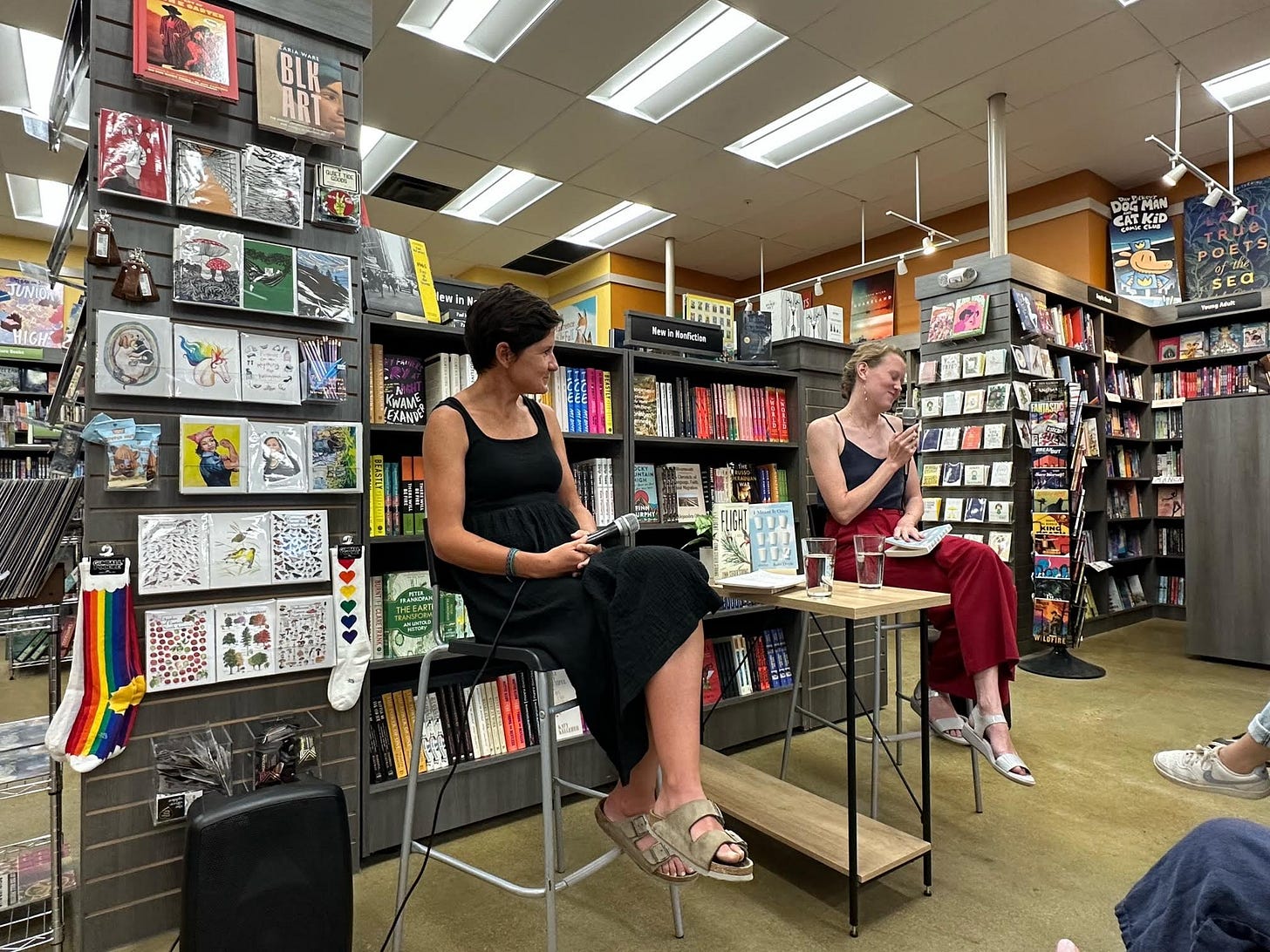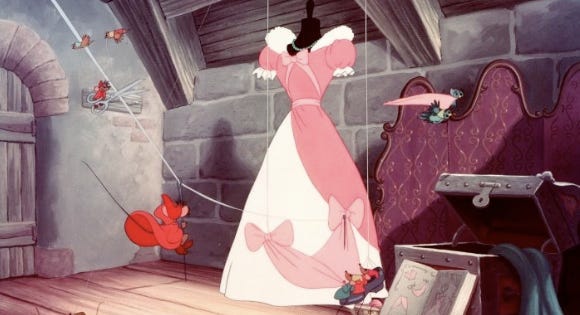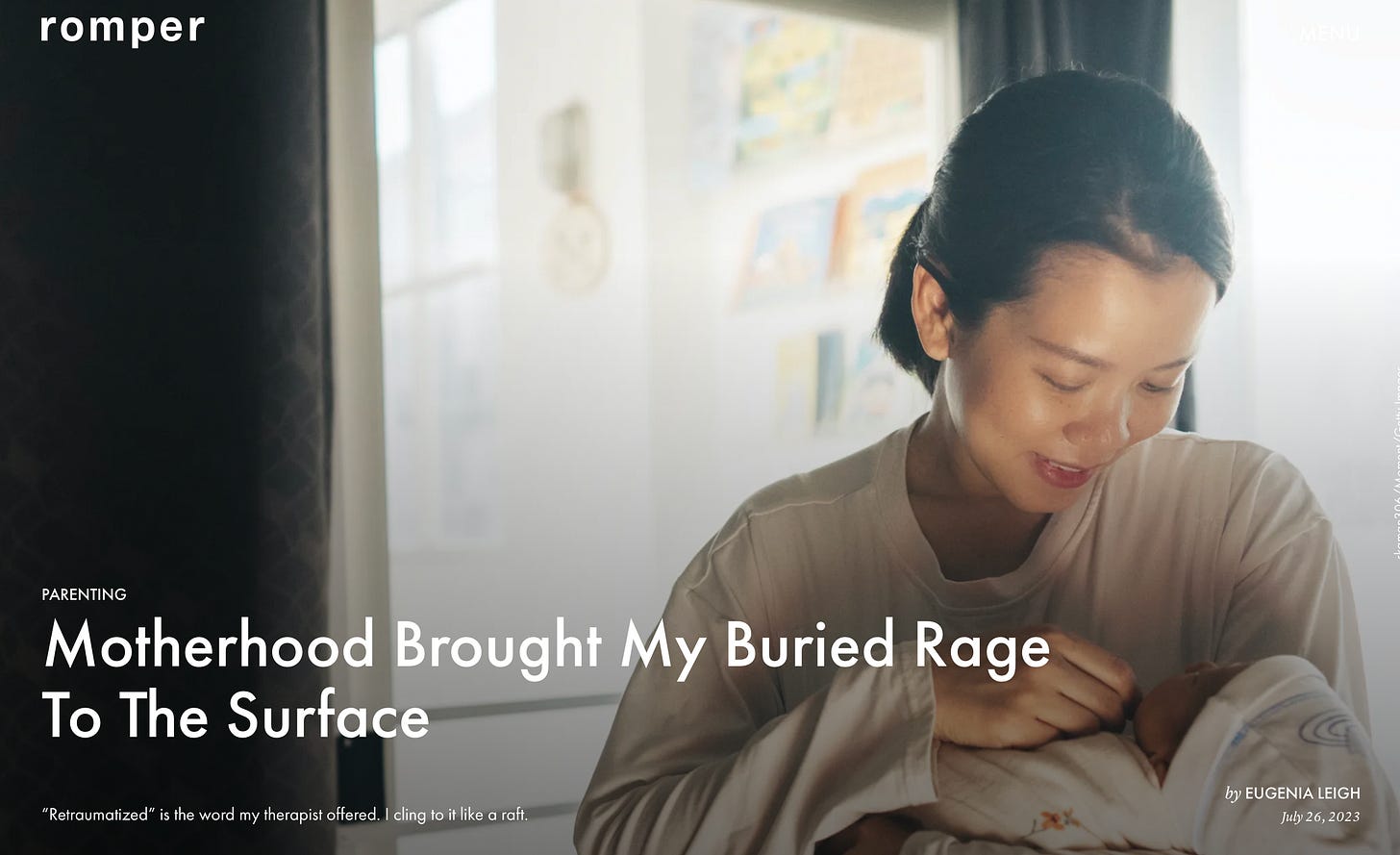BUT WHAT DO YOU WANT?
a long list of questions to get you thinking about publicity before we even meet.
This Ken is hand-talker.
So often I get on the phone with writers and I ask my favorite question, “what’s your dream scenario for how this book lands?” And … radio silence. I don’t think it’s that writers haven’t imagined the *very tangible* key moments of a books twinkle and burst into the world, but I think a lot of writers haven’t exactly drilled down their hopes (or dare I say, expectations) for what publicity and marketing of your book might look like. Maybe—it’s too great a wish to wish for some of us?
My next question usually follows: tell me about a book that you think had a successful publicity campaign, and what about it made you think that? A writers answer to this question is usually a guide on the spectrum of too-humble to long shots. (Though, for the record, Pine State is a publicity team that’s more ask forgiveness than permission, and we’re going to treat our poetry collections like we would treat award-winning novels because we do not believe in (perception) boxes.
I put some of the blame on the lack of transparency in publishing processes at most publishers—writers are riding a wave that they’ve seen happen for other writers, but don’t really know how the mechanics work. Like the mice and birds wrapping ribbons around Cinderella’s dress (or the inside of a watch), their publicity team is doing all the work behind-the-scenes and writers aren’t asking too many questions (is it a power imbalance? is it not knowing what to ask? is it the “I’m just happy to be in the room, so let’s not push it?”).
Whatever it is, I’m here to add a little ammunition behind how to answer these questions, and perhaps what to ask someone when you’re looking to hire an outside publicist. (Some of these questions you should also absolutely ask your inside publicity team) For the basics, here is my list of questions to ask a publicist on an initial call. I’m going to be real with you if you asked me every single one of these questions, I would get off that call flustered (and maybe a little frustrated). So, choose your adventure.
Some of these questions require that a publicity team has already read your work, that depends on their bandwidth and the way their processes function (and it’s not fair to eliminate them from a line-up if they don’t read the book until you’re already working together). At Pine State our process (typically) goes: read the book, phone call, proposal for client, contract, publicity. Sometimes depending on publication timeline (and I’m going to be honest, excitement about the author or description), the phone call comes before the reading.
We don’t work on books that we don’t love or books that we don’t feel we can be the most successful team to execute, so that’s also a reason for us reading every single book before we begin work.
So, what do you want? Let’s break it down:
So you think you want events. I’ll need to know the following (and we give all our clients a spreadsheet to help organize all this, though coordination is a BEAR and the spreadsheet can only take us so far).
your availability, like, down to the day and hour?
do you prefer live or virtual events?
have you, in the past, supported your local bookstore or the bookstore you would like an event?
are you aware of local reading series?
how many people could you expect to attend an event in (insert place?)
what’s your distribution like? A distribution breakdown is here.
will your press be able to get books in time?
who do you know, where do they live, and do they prefer live or virtual?
who can you be in conversation with and when will you (we?) reach out to them? This is *so important* especially if you want to go on a traveling tour where you’ll need a local author to help bring-in more folks.
if your book is coming out in November, are you willing to do events in the Spring (bookstores often cut off events before Thanksgiving and don’t resume until the New Year due to the wild and wonderful holiday shopping, we love them and let them have that).
are you friends with local writing organizations, libraries, co-ops, reading series hosts, etc?
do you want a whole tour—how many tour stops do you want?
would your press be willing to help you pay for a tour? (have you asked?)
For writing festivals: what makes you a fit for this festival or what connects your book to that region, what could you speak about or be in conversation about, what should we pitch the festival?

So you think you want speaking engagements.
Platform: are you an expert in your field, a nonfiction author, someone writing extensively about a poignant cultural moment or historical experience, an advocate or something with a larger platform?
do you have a canned talk?
do you have a list of classes you might like to teach with descriptions and timelines?
have you priced yourself (we can help with this)
do you have ideas / pitches for a 30-minute talk, 1-hour talk, craft class talk, etc? (we can also help with this).
have you been media trained? (we can recommend folks for this).
do you *actually* want a speaking agent and not a publicist?
are you friendly (alumni?) with certain universities or programs?
do we have enough months to pitch you to (insert speaking engagement)?
So you think you want to publish pre-pub essays / articles / lists / features.
EXAMPLES: this brutal & beautiful essay in Romper by Eugenia Leigh, this eviscerating essay in TIME by Eugenia Leigh, this piece on healing and stanning in Salon from Maya Golden, this piece on brand-building in Jane Friedman by Kerry Chaput, this meditative piece in Comment by John West, this fun and funky piece in Lit Hub by Kristine Langley Mahler, this piece of longing in Oregon Humanities from Jessica E. Johnson, this piece about the journey to debut poetry collection in Writers Digest from Emily Stoddard, this sonic bibliography in Oxford American from KB Brookins, this gift of a piece in Isolation Journals from Beth Kephart, and here are a few excepts: The Millions, Joyland, and Literary Hub.
depending on your platform and previous publications, I might need a whole essay that we work on back and forth through revisions
a few meetings for strategizing ideas for pieces you could write
time for us to work through revising pitches and essays
essays that are about the book AND essays that are not about the book, but thematically related (getting the book in a byline)
op-ed ideas (we can strategize together)
any previous connections to editors or media that you have / folks you have worked with in the past (this is a question on our author questionnaire and probably on every single author questionnaire ever sent out)
excerpts (if you have first serial rights to your own book! read your contract!). I always tell writers to choose excerpts when they’re in copy-editing stage. Choose an except that’s 800-1000 words, and an excerpt that’s 1200-1500 words.
have you created a playlist for the book?
do you have an idea for a book list (this is specifically if you want to pitch somewhere like Electric Literature a book list).
does the word count fit your dream publication for the piece?
does your book coincide with anything in the cultural zeitgeist (and how quickly can you write something?)
do you have any cut materials from the book (cut essays / cut stories / cut fragments that could becoming something?)
do you have any miscellaneous materials that go with the book (photos, audio recordings, news clippings, diary excerpts, etc).
are you writing more than the “personal?” There are only so many media outlets that take personal essays anymore (this is my same advice if you’re writing a memoir, and also when I say media outlets I don’t mean literary magazines, which is where most personal essays are being published). Think: personal + (personal + reported, personal + craft, personal + cultural criticism).
do you have ideas for craft essays or craft elements of your book that you could write about (in a how-to way).
I am running out of work-time for the day and in thirteen minutes get to walk downstairs to my newly-imagining toddler (who has witnessed monkeys in our yard, can you believe it?) and dance to some Sesame Street tunes, share halved grapes, and be the person I am (and most love to be) when I’m not writing this newsletter or pitching your inbox. So, I’ll cut this last part a little short.
My biggest piece of advice: start cultivating now at whatever stage of the publishing process you’re in.
Cultivate topics of conversations for events and print interviews (cultivate partners too—who do you want to talk with about your book, who do you want to host you?). Collect excerpts. Collect quotes from the book you love. Cultivate a detailed, beautiful list of reasons why you wrote it (that you can share with your publicist). Cultivate a newsletter or pick a platform that people want to subscribe to (this will help you think about your audience in new ways. Every time I click send here, I think—who’s reading? who am I writing this for?). Cultivate friendlies on social media. Write a list of blurbers. PAY ATTENTION to what’s happening with books that feel similar to yours or are published by your press—where are they getting noticed, what is working for them, how do you see them moving and building momentum?
So much work goes on in publicity that is quiet and in-secret. Last week, I got my first response (yes, ever) from a National NPR show for a book. I have not told the author because nothing is yet confirmed-confirmed, but *know* that your publicist is quietly, persistently, fervently, sending out your little wishes. But we can’t do that alone.
The strongest publicity campaigns I’ve run, I’ve been able to get that momentum because the author spent time talking / writing / answering alongside me. COLLABORATING! You wouldn’t believe how many ideas I pull from an hour on the phone with an author, or from an author really putting effort into their author questionnaire. The more time and detail you share with me, the more I can turn those nuggets into media hits. Don’t be a silent part of the process (but don’t be an asshole either).
As always, the Pine State calendar of events lives here. Request books for review & interview & feature here, add yourself to our reviewer list here, and buy our books here! You can also contact us through our website, Pinestatepublicity.com.
ICYMI: Rosanna Oh Young was on Poetry Foundation’s Poetry Off the Shelf, Kate Doyle got a stunning review in Shelf Awareness, “Doyle's characters are brightly imagined and, at moments, darkly humorous. She captures womanhood's intense and precarious state of deciding whose expectations to rise to and whose to break away from. I Meant It Once is brilliantly conceived, written, and compiled,” you can listen to Jane Kuo on KALW New Arrivals, Sara Johnson Allen was interviewed in Daily Yonder, KB Brookins’ Freedom House mentioned in Book Riot, Beth Kephart wrote about Judith Kitchen for Biblioracle, Sara Johnson Allen was on Coastline talking about debut novel Down Here We Come Up, and Kathleen Jones wrote about debut novelists who debut at a later age for Historical Novel Society.









Thank you for sharing your wisdom here. It is so overwhelming once you are a few books in and realize it is INDEED up to you if you make a living from your books. I may be knocking on your door someday.
This is remarkably thorough and actionable, whether you have a publicist or not. Thank you!